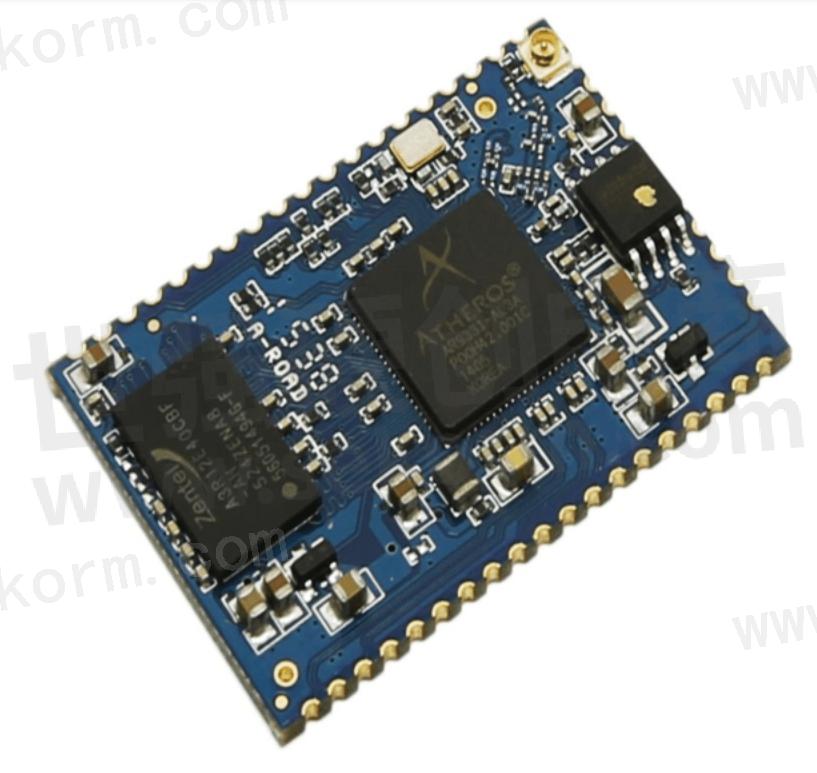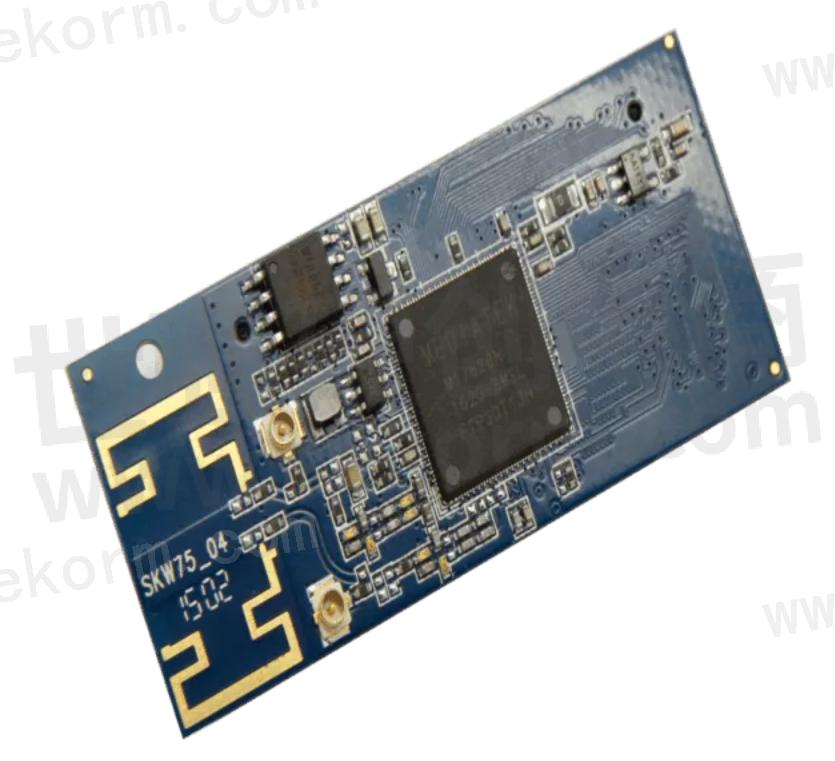How to Install 802.11 Ac USB Wifi Modules?




Today with the Internet of Things (IoT), which is the connection to everyday objects (cars, refrigerators, televisions, lights, gates, etc.)? SKYLAB 802.11 ac USB wifi module always provides instantaneous information.
And being commanded anywhere in the world through the internet makes that there is persistent communication free from failures. However, some devices cannot reach the Wi-Fi signal provided by the routers, leaving this equipment offline or with a very large instability.
How does the 802.11 ac USB wifi module work?
The 802.11 ac USB wifi module transmits and receives data at a certain frequency. It is called the Channel (channel). Also, for two or more transceiver modules to communicate. They must be on the same channel. This channel can be any frequency in the 2.4GHz ISM band or, to be more precise, it can be between 2400 to 2.525GHz.
Specifications of the 802.11 ac USB wifi module
• Operation speed of up to 2Mbps, which can be used even in high-quality VoIP applications
• Selectable baud rates between 2Mbps, 1Mbps, or 250Kbps over the air
• Low consumption, with a supply voltage of 1.9 to 3.6V
• And a current in Power Down mode of only 1μA, ideal for devices that operate on batteries
• Integrated voltage regulator
• 5V tolerant inputs
• Non-critical crystal, with a tolerance of +/- 60 PPM
• High-efficiency GFSK 802.11 ac USB wifi module
• Anti-interference ability
• Particularly suitable for industrial control applications

802.11 ac USB wifi module problems solutions
A solution to solve this problem, although not so cheap, is to install more routers, spending more money on equipment and labor to manage the entire network.
But with Mesh technology we can take advantage of the equipment already installed and transform them into a Wi-Fi signal repeater at no cost, ensuring that the signal reaches all equipment.
When creating a Mesh network, we can take advantage of 802.11 ac USB wifi modules that are already controlling equipment and assign one more function which is the bridge to provide Wi-Fi signals to those devices that are out of range of the central router.
What is Mesh Networks and How They Work
traditional networks
In traditional Wi-Fi networks, there is a router called Access Point (AP) where the various points (stations) communicate exclusively with it.The Access Point (AP) is responsible for managing the entire network. And prioritizing, providing IPs, connecting or disconnecting stations.This concentration creates a disadvantage since the entire network depends exclusively on a central device to function.
And the distance of your 802.11 ac USB wifi module reach is the distance of the maximum network.Thus, if a station is far from the AP, it may be out of range of the transmitted Wi-Fi signal, failing to communicate with the network.Traditional Network where it is possible to see that three devices cannot reach the Router's Wi-Fi signal.
Mesh networks 802.11 ac USB wifi module
It is a cheap and creative solution to extend the connection of devices where, in addition to receiving the signal. They also become a data provider, serving as a bridge to other devices creating a mesh very similar to a spider's web that all points are connected to at least two points.
And that the disruption of a node does not cause the communication to drop, as there is another pre-configured connection point and making the network self-organize almost instantly.
Mesh network. 802.11working in the network.
The 802.11 ac USB wifi module is an innovative solution since that point that cannot receive the direct Wi-Fi signal from the AP can bridge to another nearby device working. And taking advantage of an existing structure, not requiring the purchase of new equipment.
And working with redundancy since a broken connection does not affect the system where the network works in mesh and the broken point will quickly connect to another point instantly and is self-managed.
According to official documentation from Espressif, the Mesh network can connect up to 100 nodes without system breaks or instability.

802.11 ac USB wifi module in summary:
In the traditional 802.11 ac USB wifi module, the entire infrastructure is based on a true connection where the stations connect directly to the router.
And in the Mesh network, stations have a double function, obtaining. And providing data simultaneously, resulting in a network topology very similar to a spider's web. (in practice it is not the same as a web, but for didactic purposes. This definition embraces the idea of a Mesh network).
Materials and requirements used
• 802.11module
• 802.11 ac USB wifi module Module
• WiFi module ESP-01
• IDE ARDUINO
• Painless Mesh LIBRARY
Building the Mesh Network
The developer of the Library used to create the Mesh Network painlessMesh. Homemade the programmer's life much easier, not having to worry about the structure or node breakage that might happen or in the management of the network, everything happens automatically.
The network is an Ad-Hoc network that does not require the management of new devices. The entry of a new device or the shutdown occurs automatically, organizing itself without warning or jumping to the administrator.
Installing the painlessMesh Library
In our tests, the best solution was to install the painlessMesh library through GitLab, where we found the most updated and stable library.
Comments:
• This code is very basic and serves as proof of concept and changes are welcome.
• Using the delay () function interrupts the code, making it impossible to carry out tasks in the background, causing the Mesh network to generate instability or even stop working.
• A solution is to use the Milis () function to perform a certain task or even use a task scheduler.
Installation problem solutions
If some devices do not connect to the network. Also, check if the SSID name and password are correctly entered;
Scan the 802.11 ac USB wifi module Analyzer mobile app. And you'll see that the entire Mesh network shares the same channel. The discrepancy of channels as a router between the Esp prevents the exchange of data until the Esp changes channels, this happens automatically.
Thus, to avoid network failure and delay in data transmissions, the user must configure the router so that “NO” changes the Wi-Fi channel automatically.
Notes and conclusion
In tests performed, the time to create the 802.11 ac USB wifi module is generally less than one minute.
The latency between hops is 10 to 30 milliseconds. And the time of this latency is directly related to the number of hops that exist within the Mesh network.
Conclusion
Optimize as much as possible the number of transmitted/received messages, remembering that our Esp modules are very limited both in processing and in memory, so we avoid messages and network breaks.
- |
- +1 赞 0
- 收藏
- 评论 0
本文由董慧转载自SKYLAB,原文标题为:How to install 802.11 ac USB wifi modules?,本站所有转载文章系出于传递更多信息之目的,且明确注明来源,不希望被转载的媒体或个人可与我们联系,我们将立即进行删除处理。
相关推荐
How to Buy WiFi Module Options
In this article, SKYLAB will guide you through the process of buying WiFi module options, highlighting key factors to consider and offering valuable tips to make an informed purchasing decision.
How to Connect Project with USB Wifi Module 5ghz?
The USB wifi module 5ghz is a device that connects the module with the computer, making the USB-Serial connection very simple and easy, without needing to use an FTDI and using complicated connections. In this paper, SKYLAB introduces How to Connect Project with USB Wifi Module 5ghz?
What You Need to Know ABout Mini USB Wifi Module?
Small USB WiFi modules or adapters help us replace the internal wireless functionality of a computer in the most inexpensive way. Today, SKYLAB will discuss all that you should learn about these mini USB wireless adapters.
WG209–USB WiFi Module Datasheet
型号- WG209,WG209_XXX,WG209-5E6,WG209_3ES,WG209-5ES,WG209-3E4,WG209-5E4,WG209-3E6,WG209-3ES,WG209-5P6,WG209-3P4,WG209-3PS,WG209-5P4,WG209-3P6,WG209-5PS
What Are The Interfaces of WiFi Module?
What is a wifi module interface? Simply put the device needs a communication interface to exchange data with external devices. It mainly includes a USB interface, UART interface, SDIO interface, I²S interface, I²C interface, WAN port, LAN port, SPI interface, RJ-45 interface, and so on.
300Mbps Router Wifi Module with USB WLAN Interface Applied into IP UVC Camera/Ble Wifi Gateway
SKYLAB‘s SKW92A router wifi module includes an 802.11n MAC and baseband, a 2.4GHz radio and FEM, a 580MHz MIPS CPU, a 5-port 10/100 fast Ethernet switch. Solution for low power, low-cost, and highly integrated AP router and consumer electronic devices, the module requires only an external 3.3V power supply. It supports 802.11n operating up to 144Mbps for 20MHz and 300Mbps for 40MHz channel respectively, and IEEE 802.11b/g data rates.
What is Mini USB WIFI Module and How to Improve Your Wireless Internet Connection?
This article SKYLAB will introduce What is Mini USB WIFI Module and How to Improve Your Wireless Internet Connection?
What Are The Best-Selling WIFI and Bluetooth Modules in 2022?
Founded in 2002, SKYLAB is a Chinese manufacturer of WIFI/Bluetooth modules. SKYLAB has developed a series of popular WIFI/Bluetooth modules. The products are sold well in the United States, Russia, Europe, Japan, South Korea, Brazil, and other countries.
电子商城
服务
深圳市启威测实验室,面向所有企业提供信号完整性测试服务,主要包括USB、HDMI 、DP、MIPI、PCIe 、SD/EMMC、DDR接口信号测试。测试手段有波形测试、眼图测试、抖动测试等。
提交需求>
Ignion可支持多协议、宽频段的物联网天线方案设计,协议:Wi-Fi、Bluetooth、UWB、Lora、Zigbee、2G、3G、4G、5G、CBRS、GNSS、GSM、LTE-M、NB-IoT等,频段范围:400MHz~10600MHz。
最小起订量: 2500 提交需求>

































































































































































































登录 | 立即注册
提交评论